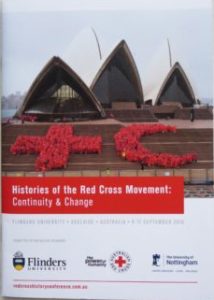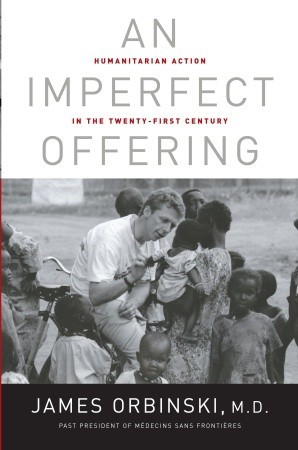by Sarah Glassford
This series is being reposted in HistPhil

RC Conference Program 2016.
During the weekend of 9-11 September 2016, roughly 50 scholars, archivists, museum curators, and aid practitioners gathered at Flinders University in Adelaide, Australia to discuss the oldest and arguably most complex of the world’s major humanitarian organizations. “Histories of the Red Cross Movement: Continuity & Change” brought together representatives of more than a dozen countries in Europe, Asia, North America, and Australasia in lively discussions of Red Cross history, Red Cross archives, and the nature of humanitarianism itself. This is the first in a series of blog posts reporting and reflecting on the issues raised at the conference.
“Histories of the Red Cross Movement: Continuity & Change” drew together three thought-provoking keynote speakers from different parts of the globe: American political scientist Michael Barnett (University Professor of International Affairs and Political Science at The George Washington University’s Elliott School of International Affairs, Washington, DC), European historian Davide Rodogno (Professor and Head of the International History Department at the Graduate Institute of International Studies, Geneva), and New Zealander historian Margaret Tennant (Professor Emeritus and Honorary Research Fellow at Massey University, Palmerston North). Each took a particular approach to thinking about the nature of humanitarianism and its history, but collectively their remarks paint a picture of a research field coming into its own.
Continue reading





